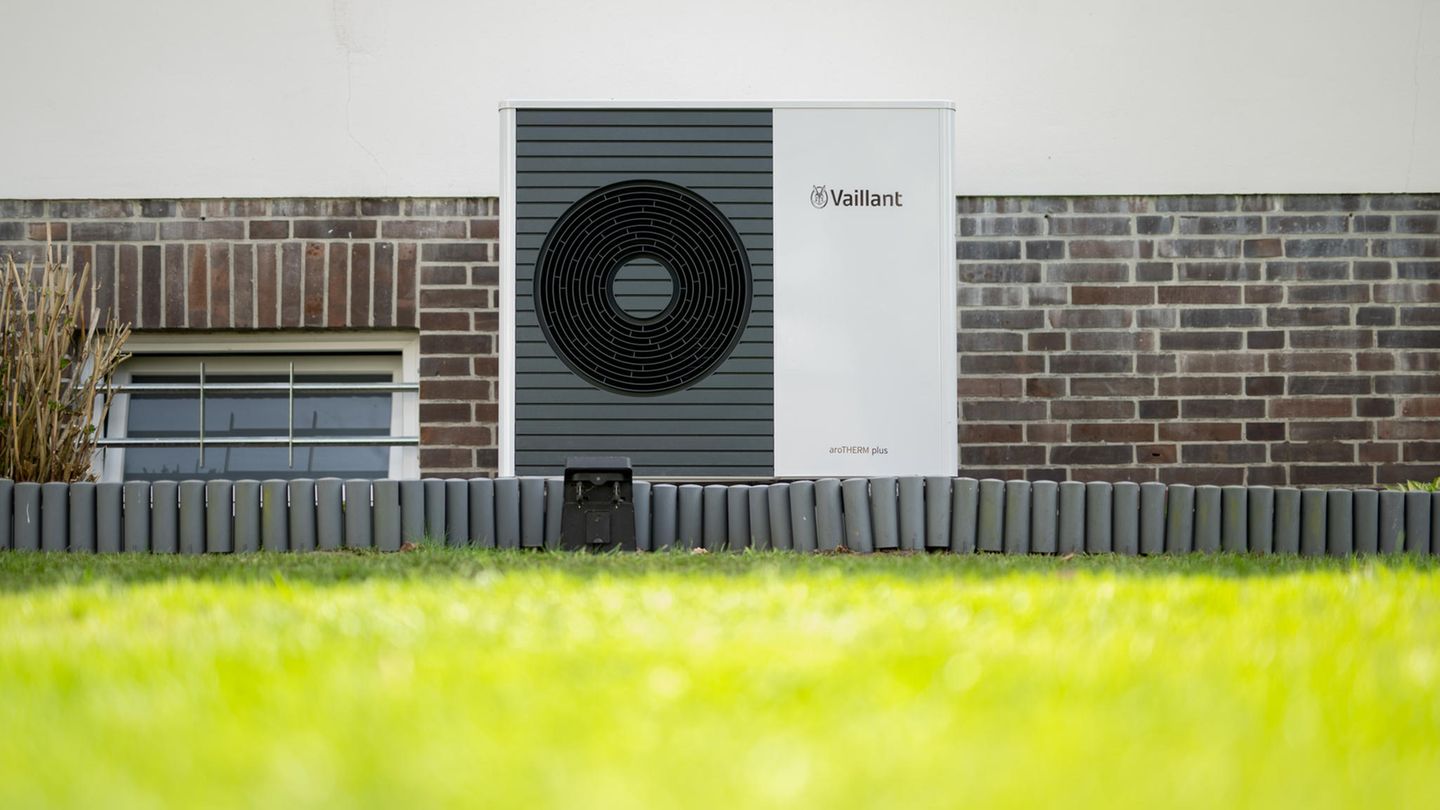Viessmann caused a stir with the sale of the heat pump business. But by no means everyone has lost faith in heat pumps from Germany – manufacturers are investing and start-ups are expanding their offerings.
By Victoria Robertz
In less than seven years, six million heat pumps should be installed in German households – that is the declared goal of the federal government. It is therefore undisputed that a heat pump boom is imminent for the German market.
But who will benefit from this? The question has been discussed more intensively since the Hessian medium-sized company Viessmann recently sold its heat pump division to the USA in a mega deal, fearing that it would soon be overwhelmed by cheap products from Asia. The buyer, the US group Carrier, has more production capacity, financial strength and know-how in the field of air conditioning technology, it said. Many experts are already interpreting the decision as a bad omen for Germany as an industrial location.
But by no means everyone has lost faith in the heat pump from Germany. On the one hand, there are several manufacturers who are now investing and even entering the business. And on the other hand, the heat pump market is also otherwise in motion, more and more start-ups are entering the market as suppliers – and relying on a mix of foreign and German suppliers.
Enpal relies on German heat pumps
Just last week, the Berlin start-up Enpal, the self-declared market leader for solar systems for end customers, announced its market entry: In a pilot phase, the company has already installed the first heat pumps, and over the course of the year there should be several thousand units in total. To this end, Enpal is cooperating with the Japanese company Daikin, which is a leader in Europe, and with the German technology group Bosch. Bit by bit, the start-up wants to buy more and more heat pumps from the German manufacturer.
One reason for the cooperation with Bosch is the hope for more security of supply, they say. “In the past few years, we have had experience of which components were more likely to be affected by bottlenecks,” emphasizes Lukas Rehling from Bosch to Capital. “We have adjusted the supply chain accordingly and this means that delivery times are shorter.”
Start-up Thermondo cooperates with LG
In the market, Enpal encounters the heating start-up Thermondo, which, according to its own statements, has so far invested several million euros in the transformation to heat pumps and has now installed 1500 of them. Thermondo is supplied by an Asian manufacturer: the start-up has been working exclusively with the South Korean technology group LG for almost a year.
heat pump, insulation, windows
There is money from the state for the house renovation
This was the choice in an internal test procedure from 41 manufacturers, in which Germans were also involved, it is said. But only the Asians could have delivered large quantities at the time of the selection process. “At the time, we were looking for a partner who could supply around 10,000 heat pumps,” says Richard Lucht from Thermondo to Capital. “At the time, that was only possible with an Asian manufacturer.” Thermondo hopes to have security of supply, at least with regard to the heat pump itself – but with additional components one is still affected by global delivery difficulties. At the same time, Thermondo is moving towards the solar market: Since the beginning of the year, the company has been testing solar systems in its range.
Is there a heat pump sell-off to Asia looming?
Because the combination of heat pump and solar system is considered to be particularly promising. A study by Solar Power Europe shows that compared to an average household that draws its electricity from the grid and uses gas heating, you could save 62 percent on energy costs. In countries like Spain and Italy, this figure is even higher. The start-up 1Komma5 Grad, founded by the former Tesla Germany boss Philipp Schröder, has been offering the combination of heat pump, solar system and wall box since 2021. According to “Handelsblatt”, heat pumps from the German manufacturer Stiebel Eltron are installed here. With the current round of financing, 1Komma5 Grad could catch up with the growth model Enpal, which has now also declared the combination to be a business model. “Not everyone has understood that the combination of solar and heat pumps is important for price stability,” says Enpal’s Benjamin Merle.
The solar start-up Zolar, which has so far offered photovoltaic systems, storage systems or wall boxes as a complete package, is currently examining the extent to which it can integrate heat pumps into its range – either they should be installed themselves or in cooperation with a partner company. The heat pump launch is currently planned for 2024. The growth in both markets, solar and heat pumps, is great, says Sarah Müller from Zolar in an interview with “Capital”. Solar is a driver for the heat pump market and vice versa.
According to Müller, reducing delivery difficulties and dependencies on other EU countries is an important building block in achieving the goal of the federal government. But there is simply no getting around Asian providers. After all, with a global market share of 40 percent, China is one of the most important manufacturers of heat pumps. From Müller’s point of view, a functioning international market is necessary. “The production volume of domestic manufacturers is not sufficient,” Müller told “Capital”. “We need a deeper value chain in Europe, but also long-term trade agreements with other countries.”
Bosch wants to invest one billion euros
The decision by the armaments group Rheinmetall to enter the heat pump business recently provided a step away from the manufacturer’s dependence on other EU countries. In the future, the Düsseldorf group wants to produce an important element for the heat pump, for which there has previously been a particularly large dependence on Asia: the compressor, which generates the heat in the heat pump and is one of the most expensive and important elements in it. In December 2022, Rheinmetall had already received an order for the manufacture of refrigerant compressors worth 770 million euros. The fact that these are intended for heat pumps has only just become known through the “Handelsblatt”.
Another large German company has announced similarly large investments in production. At the end of April, Bosch announced that it intends to invest more than one billion euros in the heat pump business by 2030. A quarter of the sum is to flow into the construction of a new plant in Poland near the German border, where around 500 new jobs are to be created. Construction is scheduled to begin in 2024, and production is scheduled to start at the turn of the year 2025/2026.
The location in Eibelshausen in central Hesse is also to be strengthened. “We expect above-average growth in the European Union in the coming years and have set ourselves the goal of growing significantly faster than the market,” said Jan Brockmann, head of the Bosch Home Comfort Group. This part of the company, which owns the heat pumps, saw a 54 percent increase in sales in 2022.
Even if individual investments are large, the International Energy Agency does not believe that the heat pump industry’s investments in new systems are sufficient overall to meet global demand. And the goal of the federal government? Ambitious, but still achievable – that is the assessment of most experts to “Capital”. In any case, the market has started to move.
This article first appeared in the business magazine “Capital”, which, like the stern, belongs to RTL Germany.
Source: Stern




